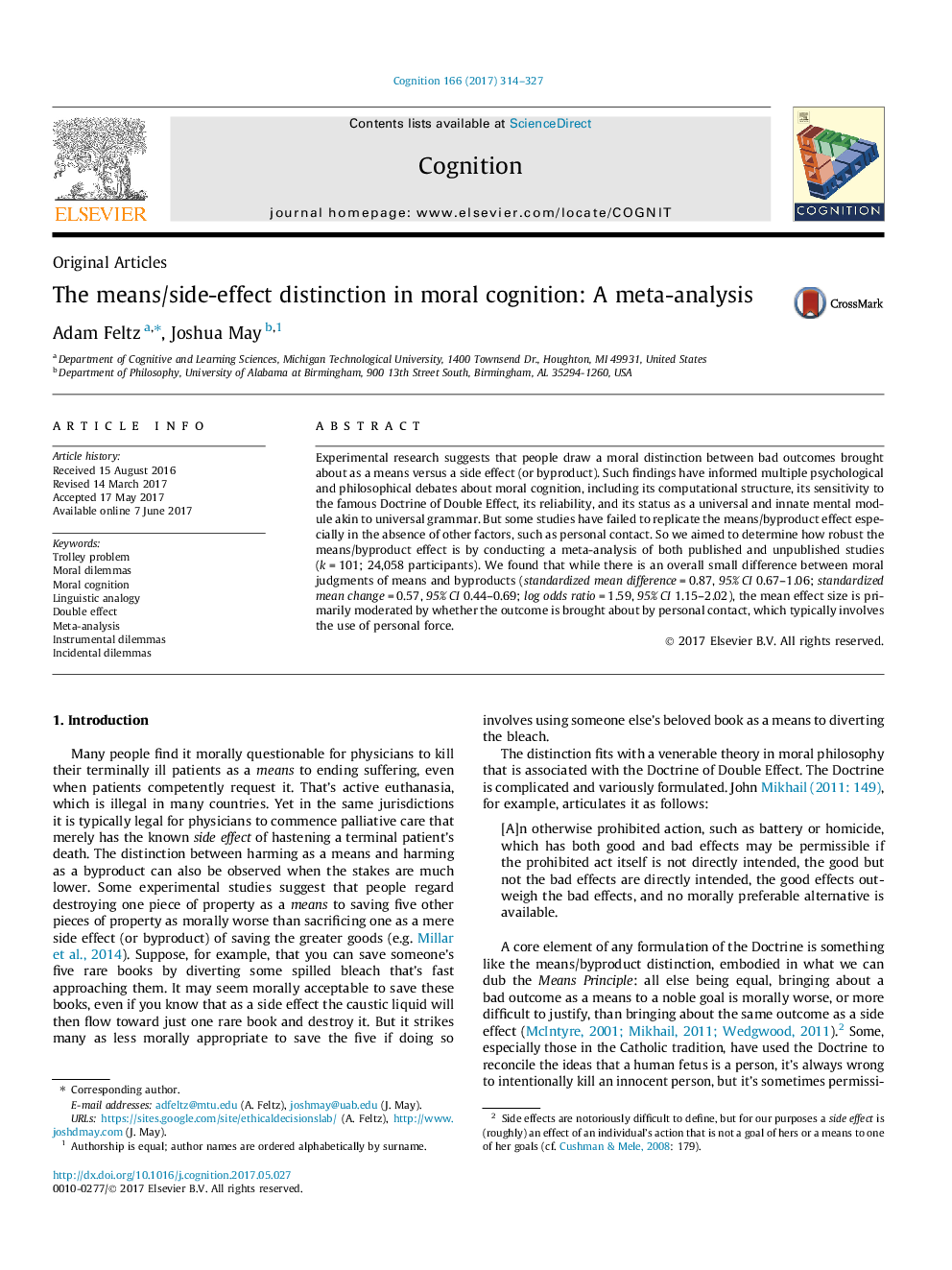| کد مقاله | کد نشریه | سال انتشار | مقاله انگلیسی | نسخه تمام متن |
|---|---|---|---|---|
| 5041560 | 1474101 | 2017 | 14 صفحه PDF | دانلود رایگان |
Experimental research suggests that people draw a moral distinction between bad outcomes brought about as a means versus a side effect (or byproduct). Such findings have informed multiple psychological and philosophical debates about moral cognition, including its computational structure, its sensitivity to the famous Doctrine of Double Effect, its reliability, and its status as a universal and innate mental module akin to universal grammar. But some studies have failed to replicate the means/byproduct effect especially in the absence of other factors, such as personal contact. So we aimed to determine how robust the means/byproduct effect is by conducting a meta-analysis of both published and unpublished studies (k = 101; 24,058 participants). We found that while there is an overall small difference between moral judgments of means and byproducts (standardized mean difference = 0.87, 95% CI 0.67-1.06; standardized mean change = 0.57, 95% CI 0.44-0.69; log odds ratio = 1.59, 95% CI 1.15-2.02), the mean effect size is primarily moderated by whether the outcome is brought about by personal contact, which typically involves the use of personal force.
Journal: Cognition - Volume 166, September 2017, Pages 314-327
